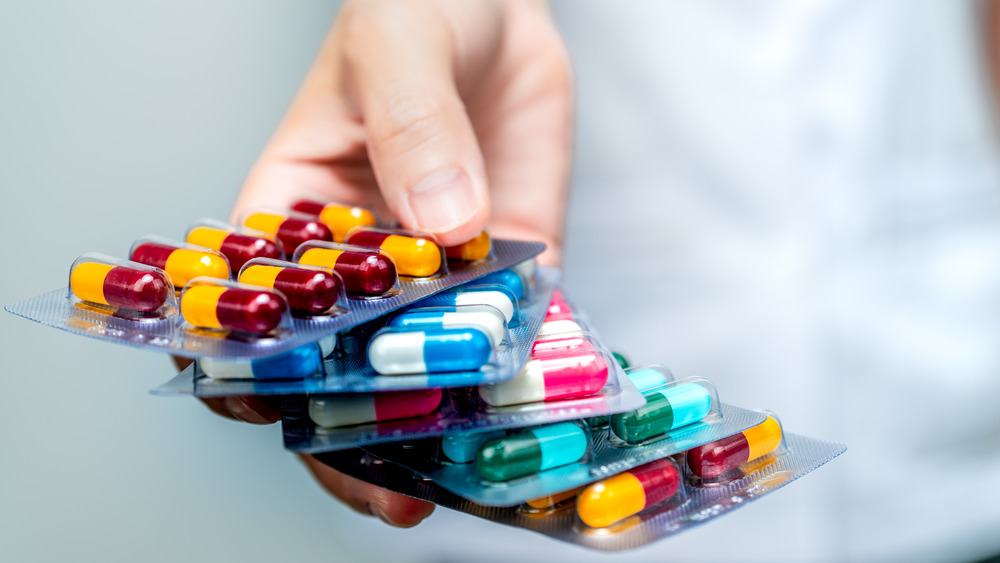The Real Difference Between Tablets And Capsules
You may have seen the words "time release tablet" or "liquid filled capsule" on many OTC medications and you may have wondered, what's the difference? And is this just a marketing ploy or does one actually perform better than the other? According to Healthline, while both options are relatively safe to take, there are some distinct differences you'll want to keep in mind.
Tablets come in different shapes and sizes, some small and oblong, commonly called caplets, and some large and round, which are usually your multivitamin. Tablets are formed by compressing one or more powdered ingredients to form a pill, sometimes with a coating or flavoring, and are sometimes created with an indented line across the middle for splitting purposes. They can be dissolvable, chewable, or swallowed whole, and the medicine is supposed to then be absorbed into the bloodstream and work for its intended purpose (via Healthline).
How to choose between the two
Capsules are a type of pill filled with liquid, powder, or pellets. According to Healthline, hard shelled capsules are airtight and have the ability to hold more than one medication, making them best for time-release needs in vitamins or dual-action medications, like some OTC cold and flu medicines. Capsules can also have a soft shell, commonly called liquid-gel, which hold the medicine inside a gel-type substance. According to Health, liquid gels are easier to swallow and the formula can be absorbed faster than other pills, but not as fast as quick dissolve tablets. Stephen Ross, M.D., tells Health, "Medicines that dissolve under the tongue get absorbed quicker than other forms."
To summarize, capsules may be better absorbed, but have a shorter shelf life, cannot be split in half, and are usually more expensive. Tablets have a longer shelf life and can hold a higher dose of medicine, but can sometimes be difficult to dissolve. When the tablet does not dissolve properly, absorption is minimized and you may not get the correct amount of medication. According to Consumer Lab, this more commonly occurs in vitamins and supplements.
If you're not sure whether capsules or tablets are right for your needs, see your healthcare provider. Likewise, if you have trouble swallowing pills or you're looking for vegan options, he or she can recommend some options right for you.


